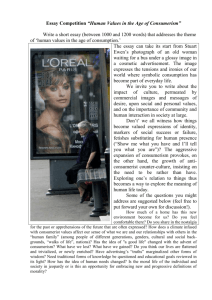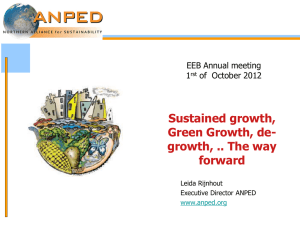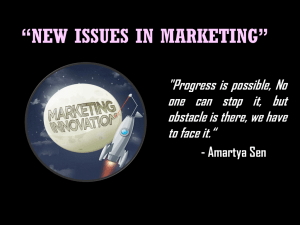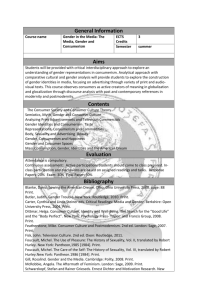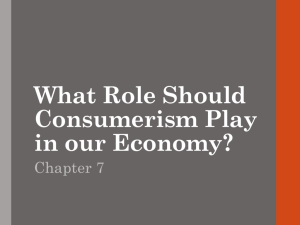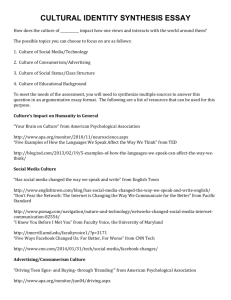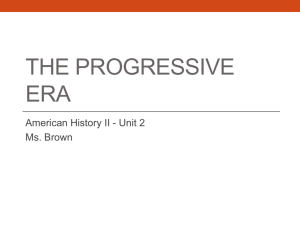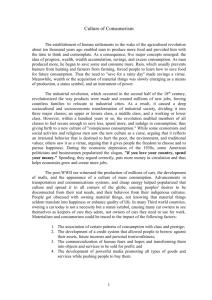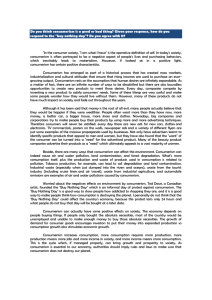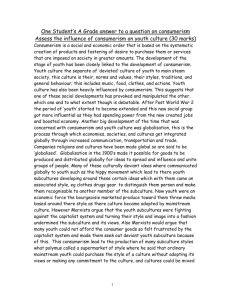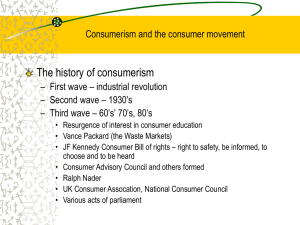CONSUMERISM AND SUSTAINABILITY
advertisement
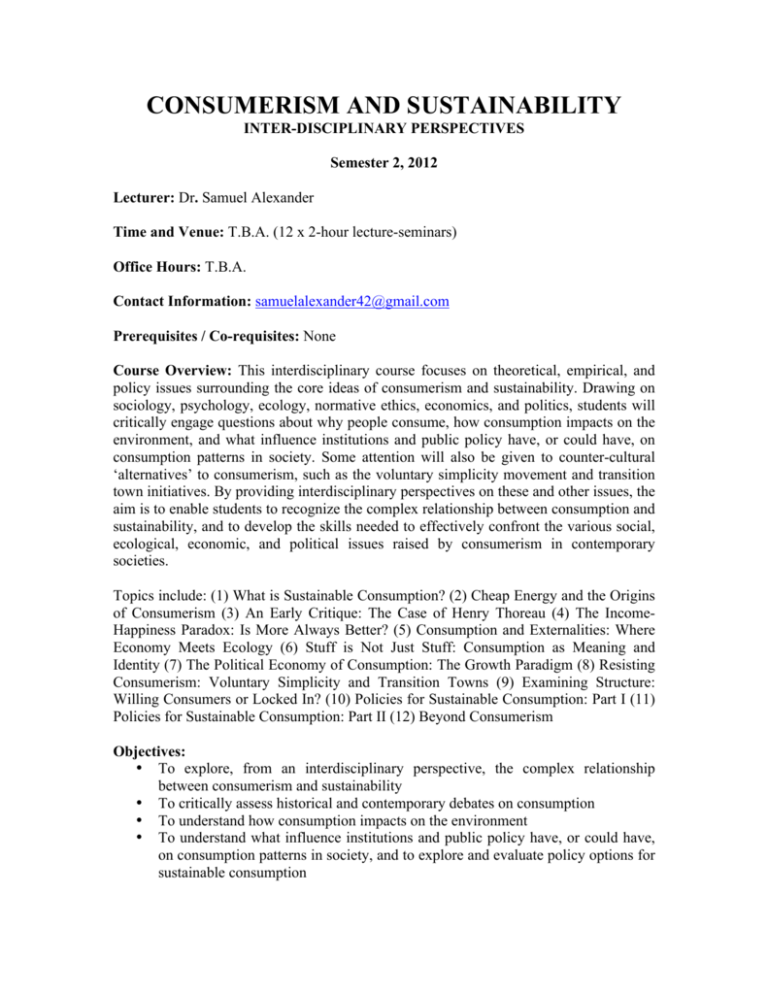
CONSUMERISM AND SUSTAINABILITY INTER-DISCIPLINARY PERSPECTIVES Semester 2, 2012 Lecturer: Dr. Samuel Alexander Time and Venue: T.B.A. (12 x 2-hour lecture-seminars) Office Hours: T.B.A. Contact Information: samuelalexander42@gmail.com Prerequisites / Co-requisites: None Course Overview: This interdisciplinary course focuses on theoretical, empirical, and policy issues surrounding the core ideas of consumerism and sustainability. Drawing on sociology, psychology, ecology, normative ethics, economics, and politics, students will critically engage questions about why people consume, how consumption impacts on the environment, and what influence institutions and public policy have, or could have, on consumption patterns in society. Some attention will also be given to counter-cultural ‘alternatives’ to consumerism, such as the voluntary simplicity movement and transition town initiatives. By providing interdisciplinary perspectives on these and other issues, the aim is to enable students to recognize the complex relationship between consumption and sustainability, and to develop the skills needed to effectively confront the various social, ecological, economic, and political issues raised by consumerism in contemporary societies. Topics include: (1) What is Sustainable Consumption? (2) Cheap Energy and the Origins of Consumerism (3) An Early Critique: The Case of Henry Thoreau (4) The IncomeHappiness Paradox: Is More Always Better? (5) Consumption and Externalities: Where Economy Meets Ecology (6) Stuff is Not Just Stuff: Consumption as Meaning and Identity (7) The Political Economy of Consumption: The Growth Paradigm (8) Resisting Consumerism: Voluntary Simplicity and Transition Towns (9) Examining Structure: Willing Consumers or Locked In? (10) Policies for Sustainable Consumption: Part I (11) Policies for Sustainable Consumption: Part II (12) Beyond Consumerism Objectives: • To explore, from an interdisciplinary perspective, the complex relationship between consumerism and sustainability • To critically assess historical and contemporary debates on consumption • To understand how consumption impacts on the environment • To understand what influence institutions and public policy have, or could have, on consumption patterns in society, and to explore and evaluate policy options for sustainable consumption Generic Skills: • Inter-disciplinary and trans-disciplinary thinking • Critical analysis of ideas, perspectives, and evidence • Research skills • Effective communication of written and oral arguments and ideas Teaching Approach • The course encourages the active participation of the students in an interactive learning environment. Students are required to read the assigned materials before coming to lectures in order to be prepared to discuss them. Some use of film / documentary / visual material will be used to prompt discussion in some classes. Grading • Research Essay 50% (3,000 word research essay) • Assignment 50% (1,500 word policy statement plus 5 minute presentation) Prescribed Readings: • There will be a course ‘Reader’ prescribed on or before 20 July 2012. Recommended Readings: • Tim Jackson (ed), Sustainable Consumption (2006) • Thomas Princen, Michael Maniates, Ken Conca (eds), Confronting Consumption (2002) • David Crocker and Toby Linden (eds), The Ethics of Consumption: The Good Life, Justice, and Global Stewardship (1998) Course Outline 1. Introduction: Exploring Sustainable Consumption 2. Cheap Energy and the Origins of Consumerism 3. An Early Critique: The Case of Henry Thoreau 4. The Income-Happiness Paradox: Is More Always Better? 5. Consumption and Externalities: Where Economy Meets Ecology 6. Stuff is Not Just Stuff: Consumption as Meaning and Identity 7. The Political Economy of Consumption: The Growth Paradigm 8. Resisting Consumerism: Voluntary Simplicity and Transition Towns 9. Examining Structure: Willing Consumers or Locked In? 10. Policies for Sustainable Consumption I 11. Policies for Sustainable Consumption II 12. Beyond Consumerism
